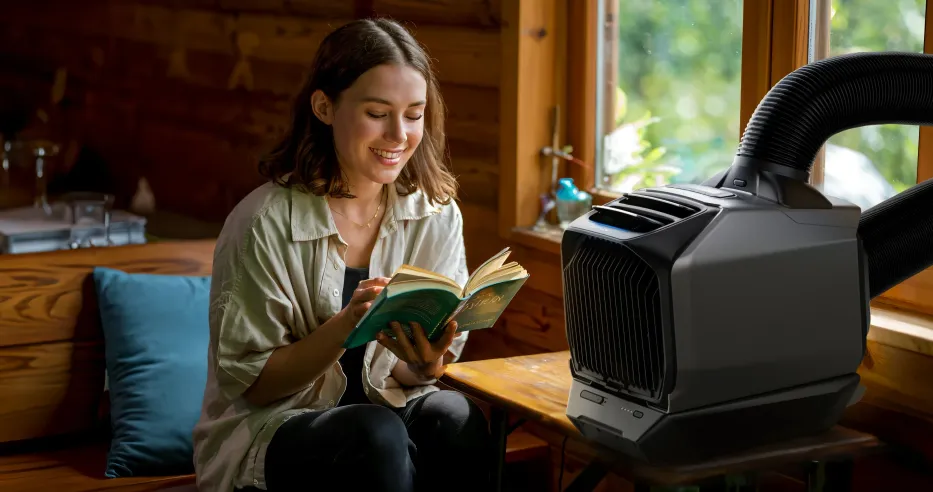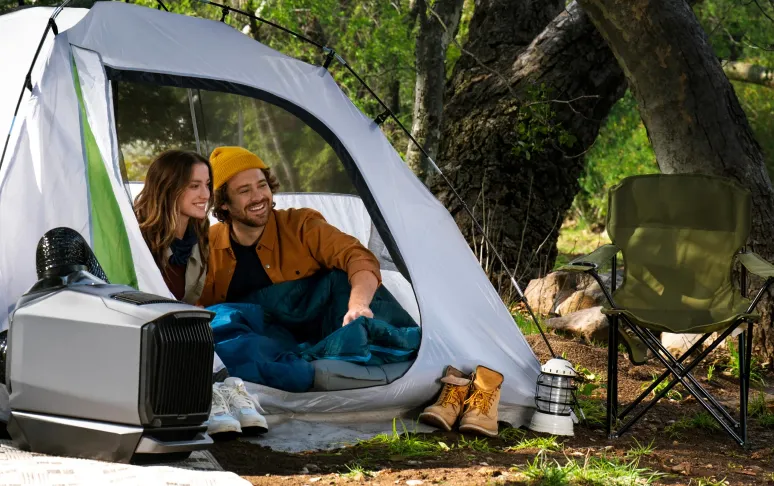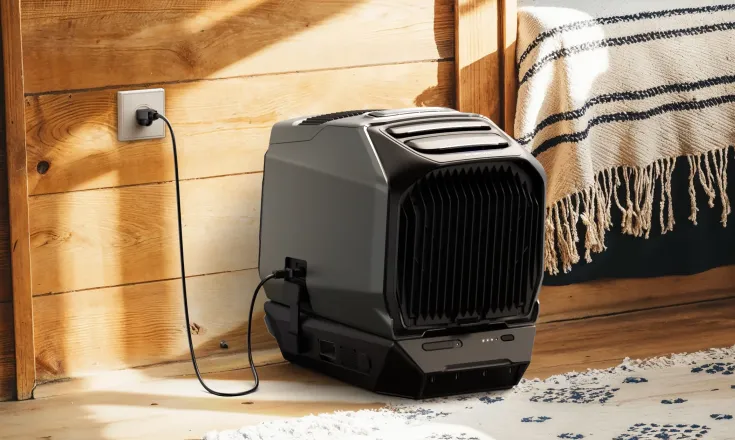Choosing the Best Outdoor Heater for Winter Camping and Patio Use
The chill of a Canadian winter doesn’t have to bring your outdoor plans to a halt. From cozy patio dinners in Toronto that linger past sundown to brisk camping nights beneath the northern lights, a dependable outdoor heater can make the cold season not just bearable, but deeply enjoyable. The right model adds warmth and comfort, transforming a frosty deck or campsite into a welcoming retreat where you can relax, socialize, or unwind after a day in the snow.
In this guide, we’ll explore what makes a heater powerful, efficient, and safe, helping you choose the perfect companion for your next backyard gathering or wilderness adventure. So you can stay outdoors, even when the mercury drops.
The Importance of Outdoor Heaters in the Canadian Winter
Canada’s winters are as breathtaking as they are unforgiving. From snow-draped forests in Quebec to blustery prairie winds in Alberta, the cold is a defining part of life here. Yet, with the right preparation, you don’t have to retreat indoors when temperatures drop. An outdoor heater transforms those chilly patios, balconies, and campsites into warm, inviting spaces where you can still gather, relax, and enjoy nature.
Extending Outdoor Living Spaces Year-Round
A good patio heater doesn’t just add warmth, it expands your living space. For many Canadians, it’s what makes outdoor living possible long after summer fades. In Vancouver, it takes the edge off damp coastal evenings, while in Montreal, it keeps the chill at bay when frost settles early. With the right heater, you can host friends for dinner on the deck in November, enjoy a quiet morning coffee under a blanket of snow, or watch the northern lights from your backyard without freezing. It transforms patios, balconies, and backyards into welcoming, all-season spaces where the cold becomes part of the charm rather than a reason to stay inside.
Supporting Winter Camping and Outdoor Adventures
For many Canadians, the backcountry isn’t just a summer getaway, it’s a year round playground. Winter camping, ice fishing, and cross country skiing all demand the right gear to keep you safe and comfortable, and a reliable outdoor heater is at the top of the list. How to stay warm in winter camping involves more than just layering clothes; a good heater can make all the difference in maintaining warmth throughout the night and during long hours outdoors. Whether you're warming up a small tent or an RV, a quality heater is crucial for creating a safe, comfortable space to relax after a day in the cold. It not only provides necessary warmth but can also be a lifesaver for drying wet clothes and gear after a long day in the snow. For those who embrace Canada’s winter wonderland, the right heater is more than a luxury, it’s a necessity for enjoying the season to its fullest.


Promoting Energy Efficiency and Sustainability
Today’s outdoor heaters are built not only for performance but also for sustainability. High efficiency propane and electric models deliver dependable warmth while minimizing fuel consumption and emissions. For environmentally conscious Canadians, this means you can stay comfortable without sacrificing eco responsibility. Some newer designs even integrate smart thermostats or battery systems that optimize output based on conditions. By choosing wisely, you can enjoy long evenings outdoors while reducing your environmental footprint, which is a win for both your comfort and the planet.
Key Factors When Choosing the Best Outdoor Heater
Choosing the right outdoor heater isn’t just about picking the one with the most power. It’s about finding the right balance between warmth, efficiency, and convenience, especially when dealing with Canada’s unpredictable weather. Whether you’re heating a backyard patio in Vancouver or a small tent in the Yukon wilderness, here’s what to keep in mind.
Heating Power and Coverage Area
When it comes to heating, the power is usually measured in BTUs (for gas heaters) or watts (for electric models). For most outdoor spaces, a heater with around 40,000 BTUs will do the job. However, if you’re using it in a smaller, more enclosed area, like a tent during a snowstorm in the Rockies, you’ll want something with a lower, more focused output. Make sure to match the power of your heater to the size of the area you’re trying to heat, so you get the warmth you need without wasting energy. Prepare for a cold wave by opting for a heater that can handle sudden temperature drops, ensuring that your outdoor space stays warm even when the weather takes a drastic turn.
Energy Source and Efficiency
The type of fuel you choose affects how mobile your heater is and how much it will cost to operate. Gas powered heaters, propane or natural gas are portable and provide powerful heat, but you’ll need to keep an eye on fuel levels and ensure proper ventilation. Electric heaters are quieter, cleaner, and perfect for covered patios, but they rely on being close to a power source. If you’re looking for the ultimate convenience, battery-powered heaters give you that off-grid freedom, providing warmth anywhere in remote Canadian areas.
Safety and Weather Resistance
Safety is key when using an outdoor heater in Canada, especially when conditions can change rapidly. Look for features like automatic shut off valves that activate if the heater tips over. Also, make sure the heater is rated for weather resistance, look for an IP rating to ensure it can handle rain, snow, and dust. This is especially important if you plan to use your heater during Canadian winters, where you’ll need something durable and safe to withstand the elements.


Types of Outdoor Heaters: Which One Is Best for Winter Camping and Patios?
Outdoor heaters have come a long way, offering tailored solutions for various environments, from your backyard patio to a remote campsite in the Canadian wilderness. For those venturing off the grid, a power station can be a game-changer, providing a reliable off-grid power source for electric heaters. Here’s a breakdown of the top outdoor heating options, each suited for different needs and situations.
Infrared Patio Heaters for Consistent Warmth
Infrared heaters, whether electric or gas powered, use radiant heat to directly warm people and objects, rather than the air around them. This makes them incredibly efficient, especially in windy or open spaces, as the heat stays close to the source without being blown away. They are ideal for covered patios, decks, and verandas, providing silent, focused warmth that’s perfect for outdoor socializing. With the ability to heat your body and surroundings without needing to warm the air, infrared heaters offer comfort even on breezy Canadian evenings.
Propane and Gas Heaters for Large Outdoor Areas
When you need a powerful heat source for large spaces, propane or gas heaters are the way to go. The iconic "mushroom" style heater, a fixture in many commercial patios, offers heat output that can reach up to 48,000 BTUs. These units are great for large residential decks, patios, or outdoor parties. Portable and mobile, they allow you to move the heat where it’s needed most, ensuring everyone stays warm no matter where they gather. Perfect for those chilly Canadian nights when you want to extend your outdoor season and host in comfort.
Electric and Battery-Powered Heaters for Portability
If you’re looking for a truly versatile option that can go off-grid, electric and battery-powered heaters provide the ultimate flexibility. The EcoFlow WAVE 3 Portable Air Conditioner with Heater is a standout in this category, offering both heating and cooling capabilities with 6,800 BTUs of power. This compact, portable unit is perfect for heating large tents, RVs, or even a small cabin during winter trips. The added benefit of being battery powered means you don’t have to worry about cords or fuel tanks, making it ideal for outdoor adventures where power sources are scarce. Whether you’re heading out on a winter camping trip or hosting an outdoor event, the WAVE 3 offers the freedom to stay comfortable in extreme Canadian temperatures.
| Heater Type | Ideal Use | Heat Output | Portabilit | Power Source |
|---|---|---|---|---|
| Infrared | Covered patio / deck | Medium | Medium | Electric |
| Propane | Large open areas | High | Medium | Gas |
| Battery-powered (EcoFlow WAVE 3) | Camping / RV | Medium-High | High | Battery |
How to Use Outdoor Heaters Safely and Efficiently
To get the most out of your outdoor heater, it's important to follow the right practices for both safety and efficiency. Here are some key tips to maximize your heater’s performance while ensuring safe, cost effective operation.
Correct Placement for Maximum Heat Distribution
The positioning of your outdoor heater plays a significant role in how effectively it warms the area. For freestanding models, placing the heater centrally or near the edges of your seating area ensures that heat is evenly distributed across the space. Be mindful to follow the manufacturer’s guidelines for safe distances from flammable materials like awnings, tent walls, or umbrellas. If you’re using a portable unit like the EcoFlow WAVE 3 inside an RV or tent, make sure to keep adequate clearance from bedding and follow the safety instructions carefully. Proper placement and ventilation are key to achieving the best heating results without compromising safety.
Maintenance and Storage During Off-Season
Proper care extends the life of your heater, ensuring it’s ready to perform when you need it most. For gas models, regularly check hoses and connections for any leaks before using them for the season. Electric heaters also require some upkeep; clean the grates and elements to ensure optimal performance. When the warmer weather arrives and you no longer need the heater, store it in a dry, protected area to keep it safe from rust, dust, and insects. A good cover can protect your heater from the elements during the off-season, keeping it in top condition for the next use.


Combining Heaters with Shelter and Insulation
To get the most efficient heating, combining your heater with proper shelter and insulation is essential. Heating an open deck is much less effective than heating a more enclosed area like a gazebo, a partially sheltered patio, or a well insulated tent. By using reflective insulation, adding windbreaks, and creating a defined space that retains heat, you can dramatically reduce heat loss. This not only helps maintain a comfortable temperature but also ensures you use less energy, making your heater more efficient while enhancing your comfort.
Conclusion
Embracing the outdoors, even in the heart of a Canadian winter, is entirely possible with the right outdoor heater. By taking into account essential factors like heating power, energy efficiency, and safety features, you can select a heater that complements your lifestyle, whether it's a robust propane model for your patio or the versatile, battery poweredEcoFlow WAVE 3 Portable Air Conditioner with Heater for your next winter camping adventure. With the right gear, you’ll find that the cold doesn’t need to stop you from enjoying the crisp, fresh air. Choose wisely, and your outdoor living can continue in comfort, no matter the season. The right outdoor heater opens the door to year-round enjoyment of the Canadian wilderness and your own backyard.
FAQ
What type of outdoor heater works best for patios and backyards?
For open patios and backyards, propane or natural gas heaters, particularly the larger freestanding models, provide the most powerful and portable heat. These heaters can cover large areas and are easy to move around, making them ideal for gatherings or outdoor activities. For covered patios, gazebos, or more enclosed spaces, an electric infrared heater is a great choice. These heaters are highly efficient as they heat objects and people directly, rather than the air, making them unaffected by wind or drafts, which makes them perfect for more sheltered spaces.
Are weatherproof outdoor electric heaters safe to use in snow or rain?
Yes, many outdoor electric heaters are designed to be weatherproof and safe for use in snow or rain, provided they have an appropriate IP (Ingress Protection) rating. For example, an IPX4 rating indicates the unit is resistant to splashing water from any direction, making it safe for use in damp or snowy conditions. However, it’s important to always check the specific product’s rating and follow the manufacturer's instructions. While most weatherproof heaters are built to withstand harsh conditions, ensuring they are correctly rated for outdoor use will provide peace of mind and help maintain safety.
Can I use outdoor heaters for camping?
Yes, you can use outdoor heaters for camping, but it’s essential to choose models designed for safe use in enclosed or semi-enclosed spaces like tents, trailers, or RVs. Always prioritize safety by ensuring proper ventilation to prevent carbon monoxide buildup if using fuel-based heaters. Battery powered or electric options, such as the EcoFlow WAVE 3 Portable Air Conditioner with Heater, are ideal for campers since they provide reliable, fume-free warmth without the need for propane or open flames. These units are compact, efficient, and built to handle the demands of off grid Canadian camping.
What’s the difference between infrared and propane patio heaters?
Propane patio heaters work by heating the surrounding air through convection, which can make them less efficient when there’s wind, as the warm air tends to disperse. Infrared heaters, on the other hand, use radiant heat to warm people and objects directly rather than the air itself. This makes them more efficient in breezy conditions and ideal for semi enclosed spaces like covered patios. Infrared models are also quieter and require less maintenance, while propane units typically produce stronger overall heat, making them the better choice for larger, open outdoor areas.
How do I power my electric heater outdoors?
To power an electric heater outdoors, you can simply plug it into a weatherproof, outdoor-rated electrical outlet if you’re on a patio or deck with access to power. For more flexibility, especially in remote areas or campsites without grid access, a portable power station or battery powered model is the best solution. Devices like the EcoFlow WAVE 3 Portable Air Conditioner with Heater offer reliable, cordless heating for several hours, making them perfect for off-grid comfort while maintaining safety and efficiency in Canada’s colder climates.